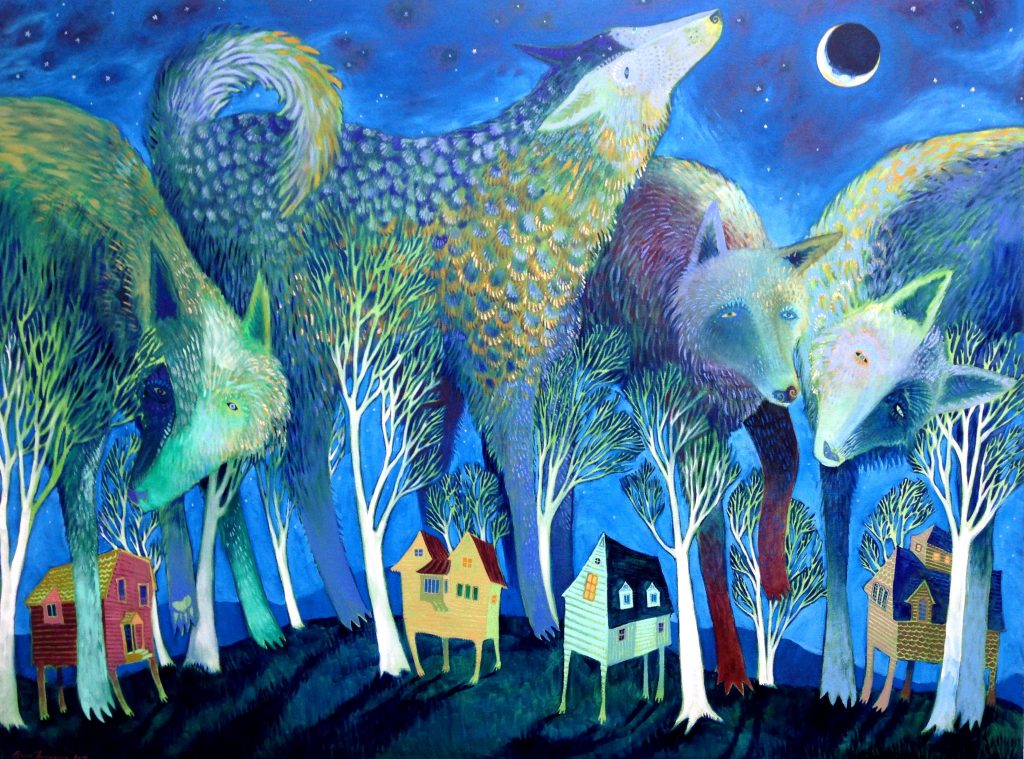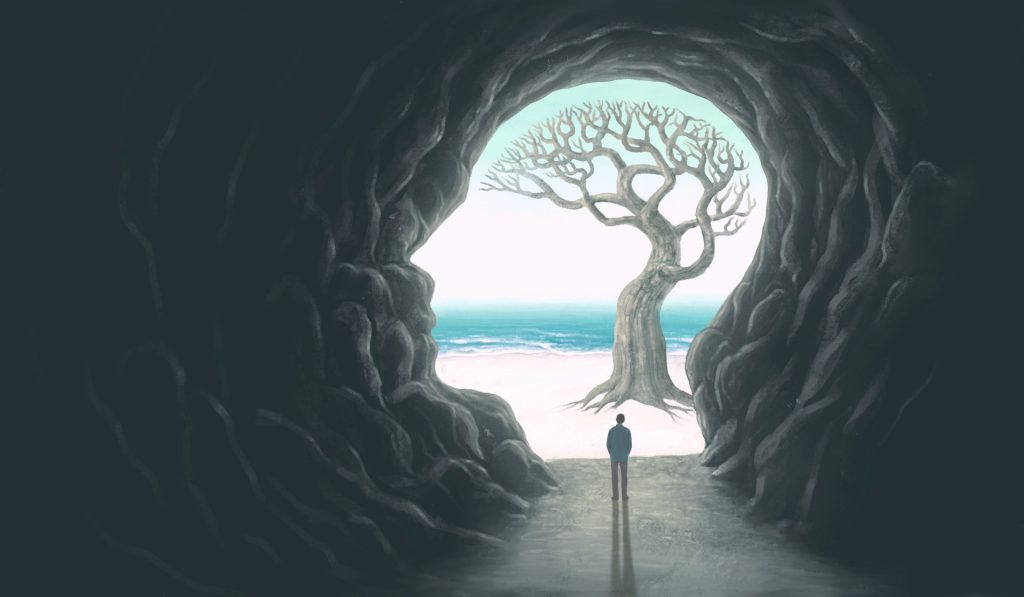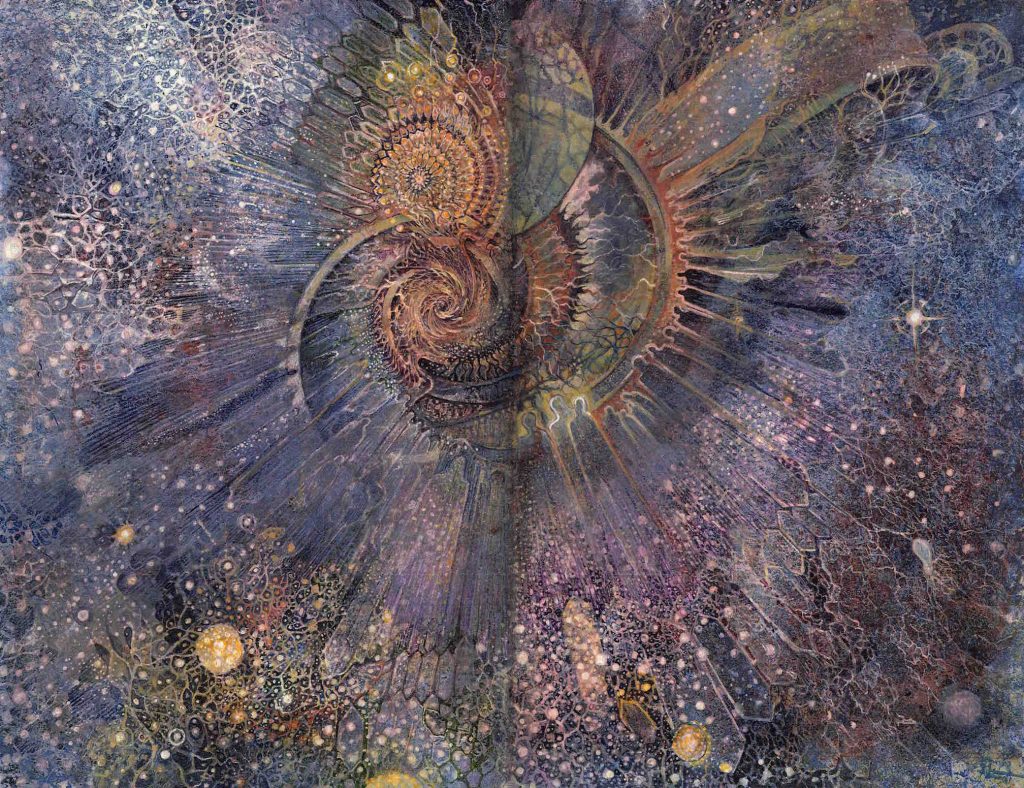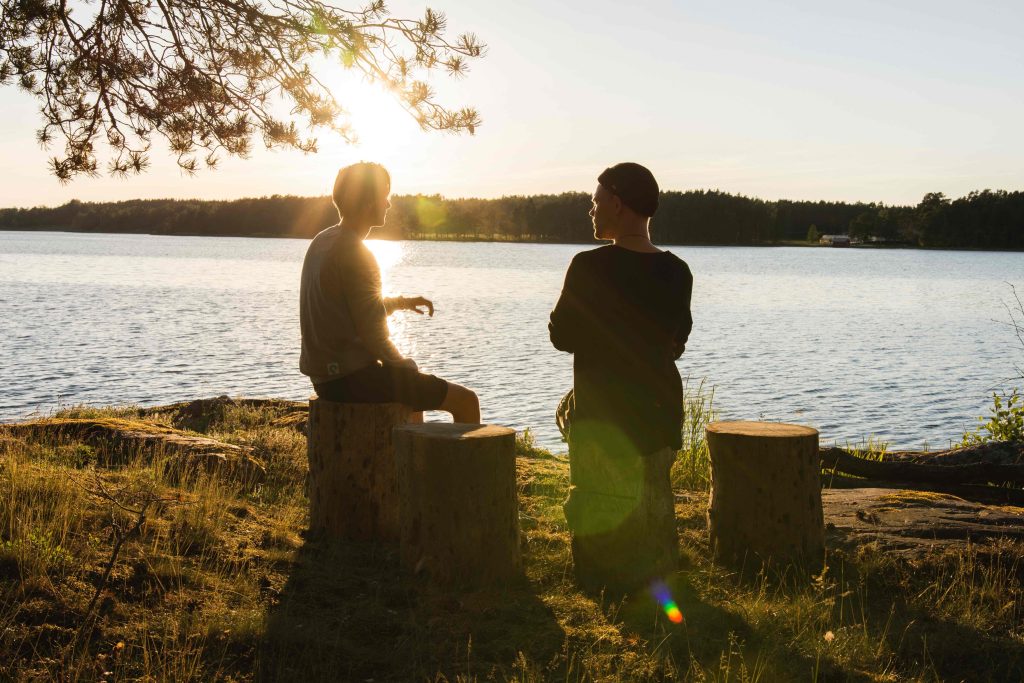Living Radical Impermanence
featured image | In The Wind by Silvia Guillet
The pace of change at the emerging edge of climate, culture, politics and technology is so fast now it’s like we’re trying to build a raft as we hurtle down the rapids. Time feels elastic as more energy pours into the ever-renewing moment. The past feels distant and the future ever more uncertain. What is still very much undecided is whether we’ll end up crashed and splintered against a rocky reach or will spill out into a vast and placid common future. I’m calling this condition radical impermanence.
To most of us, impermanence is mostly an abstraction. We know everything will change, yet we persist in constructing our personal mythologies of permanence, including all the trappings of our unique and exceptional existence. Collectively, it’s the same story. American mythology is all about permanence; our monuments, social structures and financial systems are ordered and maintained as unassailable fortresses of eternal cohesion and compliance. And it’s killing us.
Covid-19 has revealed that the increasingly complex global apparatus of modernity—the structures of permanence we call “normal,”—are a brittle system powered by greed and inequality. As if the pandemic weren’t enough, in the wake of George Floyd and other horrifying racist episodes, it’s dramatically clear to more people than ever that the exclusionary hierarchies of privilege, perpetuated in the name of neo-liberal white capitalist patriarchy, carry an economic and spiritual cost that is no longer tolerable. These events are turning our worldview upside down.
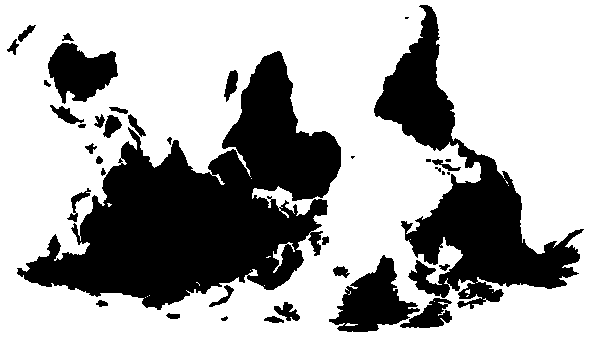
Nothing can ever be the same. We are being shocked awake from our deep complacency. With increasing clarity, we see centuries of manufactured oppression masquerading as permanent conditions. The seemingly deterministic ‘rules’ of modernity: who belongs, who does not, what roles are assigned, and how we relate to the natural world, are changing. The violence, sexism, expropriation, poisoning of natural resources, loss of biodiversity and attendant disenfranchisement that were formerly entrenched, are no longer being ignored. Whatever presumptions of permanence may have existed, are now exposed and shaken to their core.
Radical impermanence and renewal is the primary character of emergence, the very nature of reality.
Metaphorically, it’s the desert beneath the swimming pool in Las Vegas, that wildly overdeveloped Eden of excess, a wasteland of consumption, a mirage of an oasis, hastening toward its own demise. Such is the nature of all temples of permanence, real or imagined. They eventually fade and die.
Embracing radical impermanence is the antidote to the overwhelming contradiction between what we know to be true and what we see in the world. We must never be lulled back into complacency. We can’t go back to sleep. We are thirsty for change now. In the face of dangerous authoritarian threat, the awakened collective heart-mind demands we fully address collective trauma.
More than this, as we lean into transformation, heralding egalitarian collectivism, environmental regeneration, authentic representational governance, and a full flowering of communion, we shouldn’t imagine an end to the process. Transformation is an ongoing engagement, the ethic of radical impermanence itself. There is no end to it, just as there is no end to emergence. Real change is messy, unpredictable and perpetually disruptive. And if we are to truly engage with life as emergence, we must live radical impermanence and renewal in our bones.
Yes, there is great uncertainty now and we are seeing the healthy and unhealthy ways people are dealing with it. Some can embrace it, while in others it incites reactionary panic. Yet in that uncertainty and instability is enormous opportunity for creative expression, spontaneity and new relationships. Seeing the new world as a field of continuously refreshing engagement, we are less enthralled by the comforting quicksand of the past. Returning to what we used to call “normal” is a profoundly false, desperate and doomed proposition—as if we could simply look away from what’s so glaringly obvious. No. Everything demands renegotiation now.
Let the memory of those we’ve needlessly and tragically lost be the fuel of transformation. Like fallen leaves on a forest floor, they are treasured reminders of impermanence, nourishing the soil of our grief and refreshing our resolve. What the deceased are giving us is immeasurable. They have cleared space for us to mourn, to fully accept our rage, to share our deep unrest and to acknowledge the persistent thorn of work undone.
The events of this year have challenged us to find our vital compass and return to genuine Earth-centered experience, restoring our capacity to feel ourselves as the metabolism of the Earth while accepting our vulnerability and fear as the desperation of our fragile egos seeking comfort and control.
We can support each other as we navigate the agonies of throwing off our addictions and recovering our innate vision and capacities. Whether making noise or regenerating in silence, our strength comes from decolonizing our future. Our grief for this disappearing world moistens the ground of creative imagination, arising from the heart of silence.
The increasing velocity of change is emblematic of radical impermanence. Dismantling the dying paradigm is enlightened action. Let it be driven by generosity and compassion, expressing who we are in wholeness, a field of intimacy built on connection, free expression, inclusion, humor and humility.
Las Vegas is already shimmering into oblivion. And this writing, upon completion, will instantly become obsolete.



